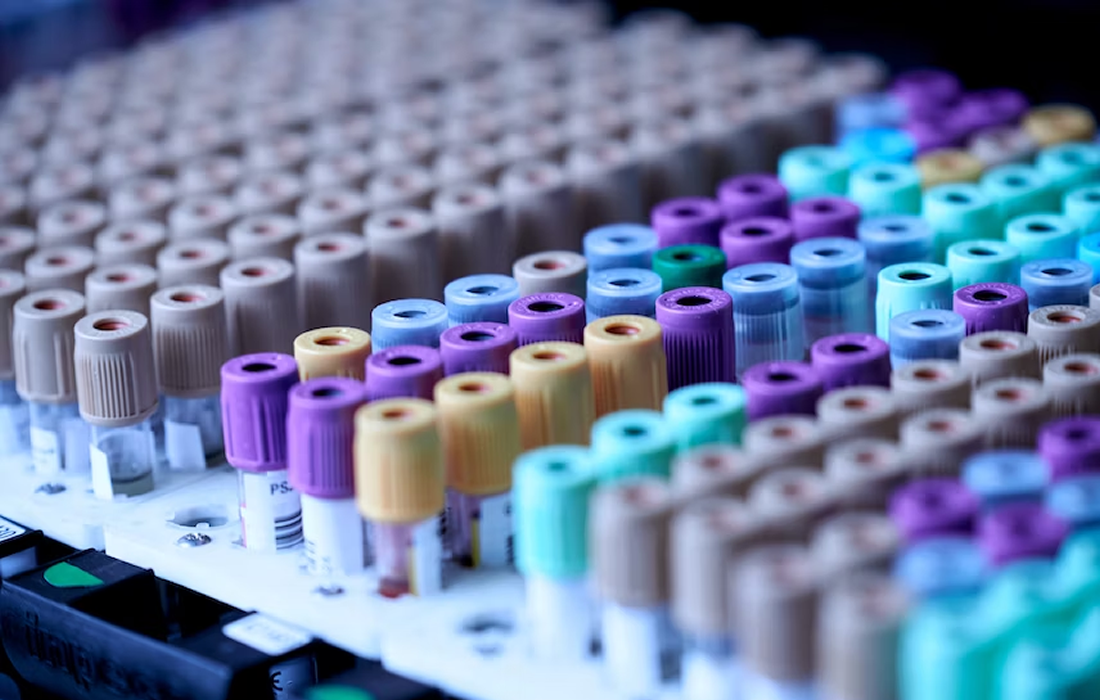Regenerative Medicine News and General Information
Blood Test Detects Cancers Early On
Novel blood testing technology being developed by researchers at the Johns Hopkins Kimmel Cancer Center that combines genome-wide sequencing of single molecules of DNA shed from tumors and machine learning may allow earlier detection of lung and other cancers.
The test, called GEMINI (Genome-wide Mutational Incidence for Non-Invasive detection of cancer), looks for changes to DNA throughout the genome.
First, a blood sample is collected from a person at risk for developing cancer. Then, cell-free DNA (cfDNA) shed by tumors is extracted from the plasma and sequenced using cost-efficient whole genome sequencing. Single molecules of DNA are analyzed for sequence alterations and are used to obtain mutation profiles across the genome. Finally, a machine learning model trained to identify changes in cancer and non-cancer mutation frequencies in different regions of the genome is used to distinguish people who have cancer from those who do not have cancer. The classifier generates a score ranging from 0 to 1, with a higher score reflecting a higher probability of having cancer.
In a series of laboratory tests of GEMINI, investigators found that the approach, when followed by computerized tomography imaging, detected over 90% of lung cancers, including among patients with stage I and II disease. A description of the work, a proof-of-concept study, was published online July 27 in the journal Nature Genetics.
The investigators also studied the use of GEMINI in other study samples, including seven patients who did not have any detectable tumors at the time of blood collection. They had a median GEMINI score of 0.78, which is higher than people without cancer. Six tested positive using GEMINI and were later diagnosed with lung cancer from 231 to 1,868 days after samples were obtained, suggesting that abnormalities in cfDNA mutation profiles can be detected years before standard diagnoses.
Additional experiments determined that GEMINI could distinguish between subtypes of lung cancers and could detect early liver cancers. In a group of patients receiving lung cancer drug treatment, GEMINI scores decreased during initial response to therapy, suggesting the testing could be used to monitor patients during therapy.
Together, the results indicate that the combination of genome-wide GEMINI mutation analyses and DELFI fragmentation analyses of cfDNA “may provide an opportunity for cost-efficient, scalable detection of cancers,” says Rob Scharpf, Ph.D., associate professor of oncology at the Kimmel Cancer Center. Larger clinical trials are needed to validate the tool before it could become available for clinical use, he says.
Sources:
Daniel C. Bruhm, Dimitrios Mathios, Zachariah H. Foda, Akshaya V. Annapragada, Jamie E. Medina, Vilmos Adleff, Elaine Jiayuee Chiao, Leonardo Ferreira, Stephen Cristiano, James R. White, Sarah A. Mazzilli, Ehab Billatos, Avrum Spira, Ali H. Zaidi, Jeffrey Mueller, Amy K. Kim, Valsamo Anagnostou, Jillian Phallen, Robert B. Scharpf, Victor E. Velculescu. Single-molecule genome-wide mutation profiles of cell-free DNA for non-invasive detection of cancer. Nature Genetics, 2023; DOI: 10.1038/s41588-023-01446-3
Johns Hopkins Medicine. (2023, August 3). Novel machine learning blood test detects cancers with genome-wide mutations in single molecules of cell-free DNA. ScienceDaily. Retrieved August 4, 2023 from www.sciencedaily.com/releases/2023/08/230803213827.htm
Image from: https://unsplash.com/photos/0jE8ynV4mis

